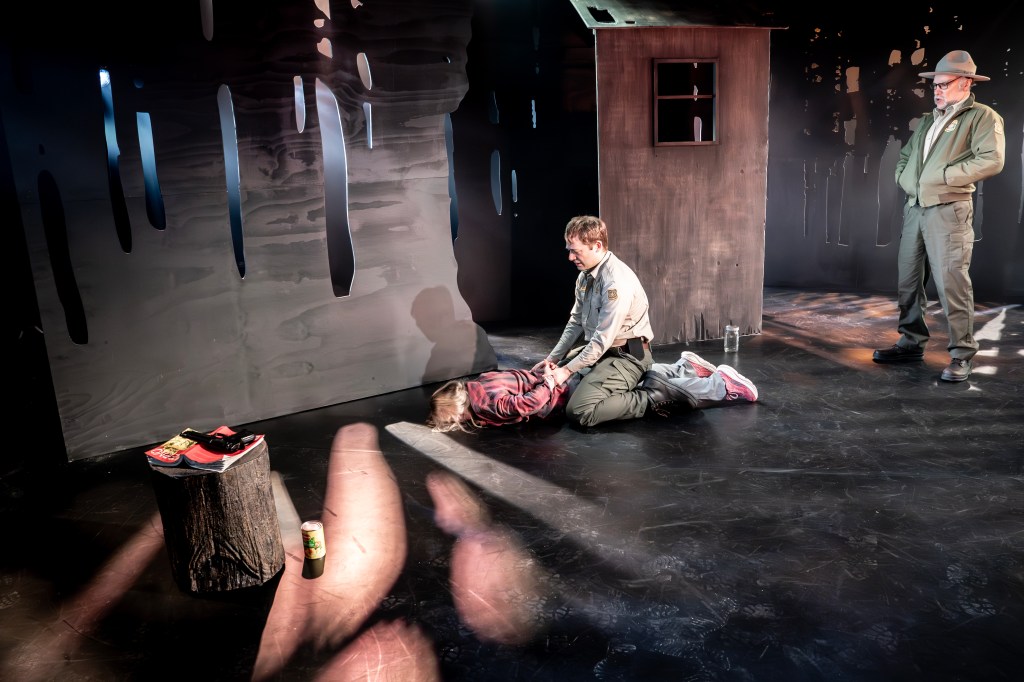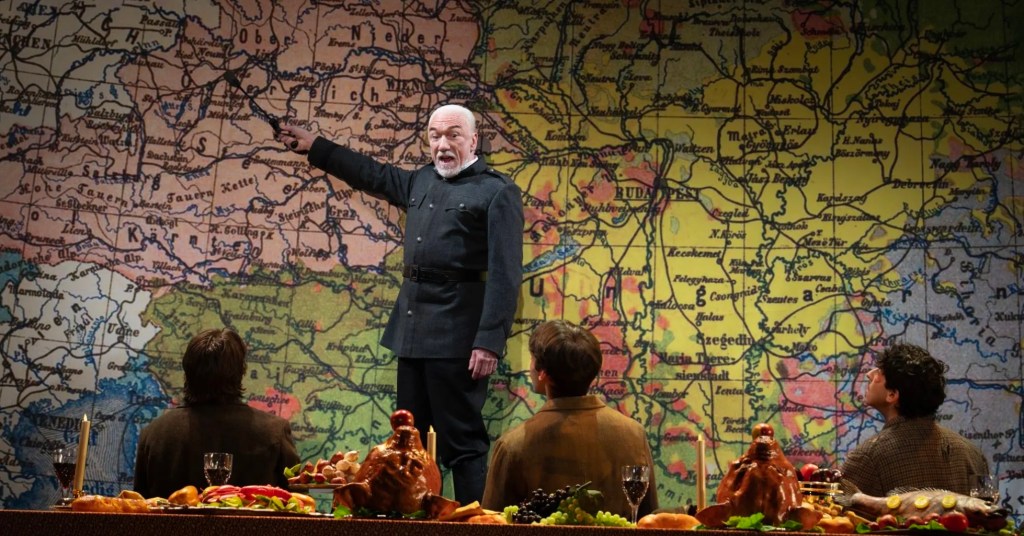When I went to Russia as a child, my parents and I brought Skippy, Hanes, and Levis to a friend’s niece in Moscow. All the best restaurants only took American dollars, which were unavailable to local residents, and we were constantly shadowed “for our safety.” When I returned as an adult, all of my guides had their own Ikea-furnished apartments. One of our destinations was a sprawling indoor mall in the center of Moscow and international fast-food chains were as plentiful as the family owned dumpling joints. Between those two eras, the Soviet Union had been dissolved and the promise of social democracy hung in the air.
It is within that unsettled period of 1992 that Lauren Yee has set her new comedy, Mother Russia. Erstwhile aspiring KGB agent Dmitri is operating a tiny general store in St. Petersburg while surveying former pop star Katya as a side gig. His childhood friend Evgeny tries to shake him down for protection money. The pathetic attempt at menace leads to an alternative job offer. A devoted fan of Katya, Evgeny will follow her when she is off mic and will take a shift monitoring her. The fourth character is an explosion of innovation. David Turner portrays Mother Russia herself, an embodiment of Russian history, ideology and culture. Dressed in bright tomato red from babushka to pointy shoe (costumes by Sophia Choi), she can see back to the “not so bad” Ivan the Terrible and forward to Pussy Riot and Navalny. Within the whirl of broad and situational humor, she is the snide ballast, overseeing all that transpires.
Wildly praised prior to the pandemic — particularly for Cambodian Rock Band which inventively explored the terror of the Khmer Rouge using a father/daughter story with music — Lauren Yee is currently a playwright in residence at the SignatureTheatre. Her pen and tongue are still sharp, though she seems in a more fun-loving mood this time around. Lines are written in colloquial English but with Russian construction. Teddy Bergman’s playful direction enriches the slender script. The prolific and visionary scenic design team of dots plays up the conflicting worlds of artifice and factuality that run throughout its pages. The central portion of the set has a detailed commercialized frame and a defaced rolling metal door that is often used for emphasis. Fancifully painted curtains complete the look of a city bus and Evgeny’s family home. This two-pronged motif is continued with Jon Knust cunning props. Sound designer Mikhail Fiksel makes terrific use of a wide range of music
The part of Mother Russia is made riveting by Turner’s droll and pricelessly-timed thick-accented delivery. He is not alone in mining the dialogue for every precious laugh. Dmitri could easily be two dimensional, but Steven Boyer gives him heart and amiableness. Adam Chanler-Berat elevates and varies Evgeny’s many feeble attempts at swagger. The two play good-naturedly with one another, especially in a scene co-starring a Filet-O-Fish sandwich. Rebecca Naomi Jones does the most she can as Katya, a surprisingly flat role given that the singer/revolutionary is the catalyst for the climactic scene. Ironically, we get a clearer image of Dmitri’s never-seen girlfriend, Masha.
Genuinely unfunny is the current design of the black box space of The Romulus Linney Courtyard Theatre. The narrow ceiling-high stadium seating is oppressive, leading many audience members to use their programs for air circulation. Those in the back rows crouch like tennis fans in an impractical effort to take in the intimate scenes while those nearer the front must crane their neck to follow David Turner’s antics. If the red house lights are intended to make us feel as disoriented as a typical Russian in the 1990s, then they work.
The ingredients for blistering social commentary are present. But Mother Russia subverts a more serious conversation about economic and societal challenges in favor of punchy lines in absurdist packaging. Given the current state of our own culture, one could do worse than spend 90 minutes laughing at and with these talented artists. The New York Premiere continues through March 22 at the SignatureTheatre in Pershing Square, 480 West 42nd Street. Tickets begin at $74. Visit https://signaturetheatre.org/show/mother-russia/ for more information.










